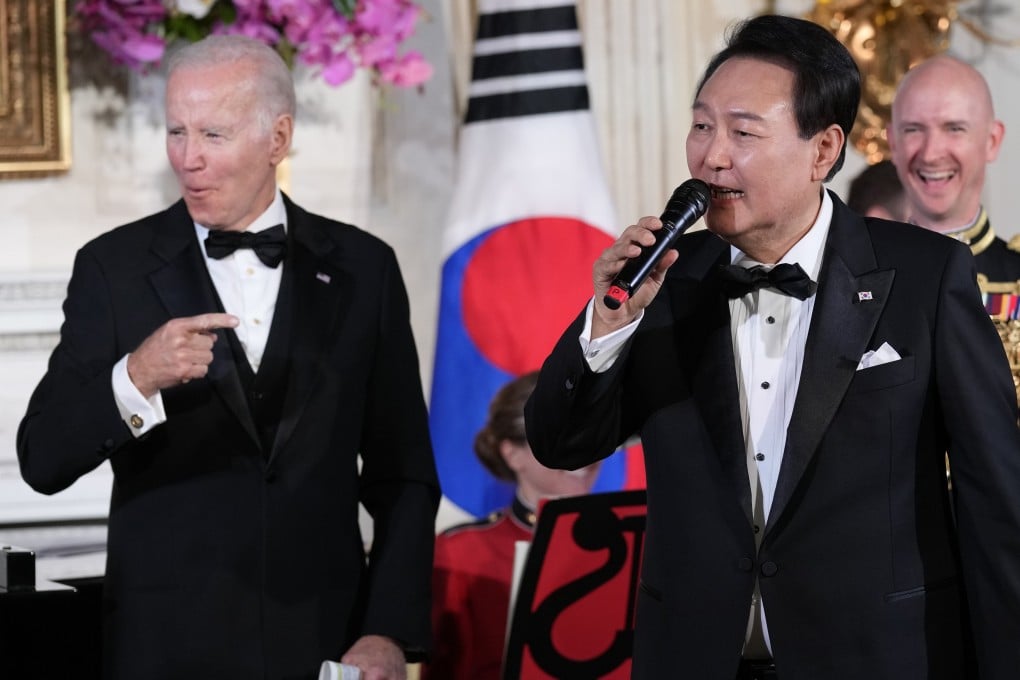Advertisement
Opinion | As Biden and Yoon reach for ‘overwhelming power’ against Pyongyang, chances of peace on Korean peninsula take a hit
- Instead of focusing on more military measures to counter North Korea, leaders in the US and South Korea should be finding ways to revive diplomacy and dialogue
Reading Time:3 minutes
Why you can trust SCMP
6

After the recent summit between US President Joe Biden and South Korean President Yoon Suk-yeol, questions are being raised about the future of diplomacy on the Korean peninsula.
The priority at the meeting was clearly to discuss military measures to counter North Korea, instead of finding ways to revive diplomacy and dialogue. Yoon emphasised that the policy line being pursued by Washington and Seoul was aimed at achieving peace “through the superiority of overwhelming forces and not a false peace based on the goodwill of the other side.”
Yoon reiterated this stance last Tuesday, vowing to strengthen South Korea’s national security through “peace by overwhelming power, not a fake peace”. Yoon, his ruling party and a large number of conservatives in South Korea believe that the previous administration’s North Korea strategy was too appeasing and naive, with a major pitfall being its reliance on Pyongyang’s goodwill.
Advertisement
But this perception is rather narrow and fails to acknowledge the many successes that former president Moon Jae-in’s policies achieved. The most obvious was the significant de-escalation of tensions after the volatile stand-off in 2017.
Although no solution was found to the North Korean nuclear problem, the former government was able to bring the North Koreans back to the negotiating table, launch peace and exchange initiatives with the North, and play a valuable mediating role between Washington and Pyongyang.
Advertisement
The state of the current US-South Korea alliance, however, is moving things in the opposite direction.
Advertisement
Select Voice
Select Speed
1.00x
